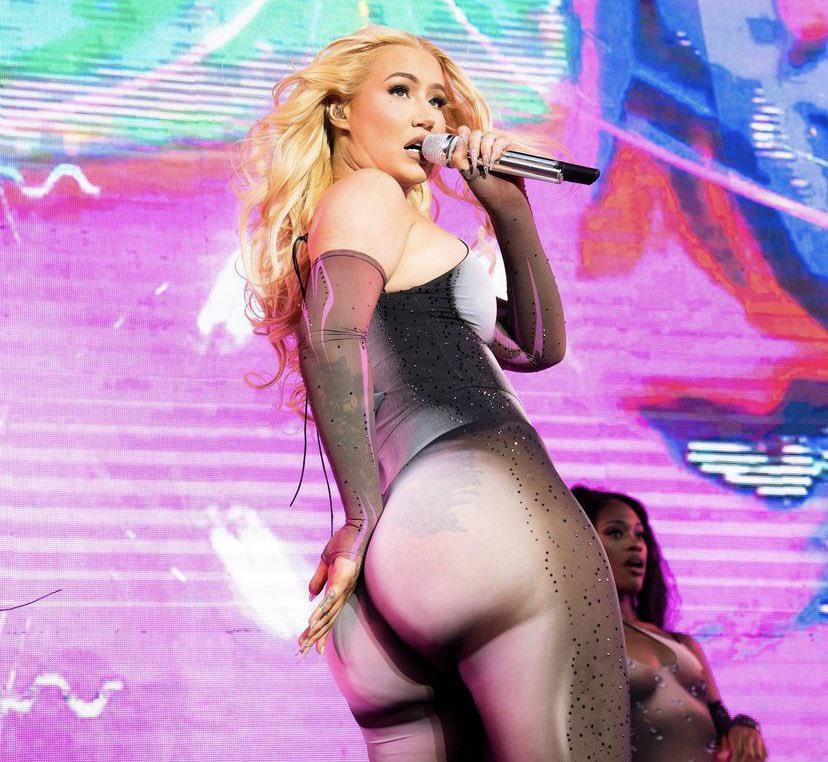Iggy Azalea’s story has always been one of ambition, reinvention, and unapologetic self-belief. From her early beginnings in rural Australia to becoming one of the most recognizable names in hip-hop, she has spent over a decade carving a path that defied expectations and challenged conventions. Yet, beyond the hit singles, red-carpet appearances, and internet controversies, the most compelling part of Iggy’s journey is how she ultimately took full control of her brand and her future — not through luck, but through strategy, resilience, and relentless work ethic.



Born Amethyst Amelia Kelly in Sydney, Iggy grew up with dreams that far outstretched her surroundings. She left Australia as a teenager, drawn to the United States by her passion for hip-hop — a bold move that reflected both her determination and her sense of purpose. From the start, she faced the kind of skepticism that often greets outsiders in an insular music world. But what she lacked in connections, she made up for in focus. Iggy built her early fanbase online, releasing music videos independently and using social media to cultivate a distinct voice and aesthetic. Her breakout hit “Fancy” in 2014 catapulted her to global stardom, making her a household name and one of the most streamed female rappers of the decade.



But with that fame came scrutiny. Iggy’s rapid rise was met with equal parts admiration and criticism. While her style and confidence won her legions of fans, the media often fixated on controversies around authenticity, image, and public perception. Over time, she became a polarizing figure — celebrated for her success yet burdened by the weight of constant judgment. For many artists, that kind of pressure might have been career-defining. For Iggy, it became career-reshaping. The turbulence pushed her to step back and reassess not just her music, but the systems controlling it. She realized that real success meant more than chart-topping singles — it meant ownership.



In the years that followed, Iggy Azalea began an intentional transformation from performer to entrepreneur. She parted ways with major labels and began to operate independently, releasing her music on her own terms. It was a bold decision in an industry where control is often limited for artists, especially women. But for Iggy, independence wasn’t just a business move; it was a declaration of identity. She had learned firsthand how the industry could commodify artists, reducing them to trends rather than individuals. By taking control of her creative output, she ensured that her voice would no longer be filtered or repackaged to fit someone else’s narrative.



Her independent releases, including Survive the Summer and In My Defense, marked the beginning of this new chapter. While the albums didn’t always dominate the mainstream charts the way her earlier work did, they represented something far more important: freedom. Iggy wrote, produced, and distributed music that reflected her authentic self — unfiltered, confident, and creatively experimental. She began to rebuild her brand around autonomy rather than approval, shifting the conversation from controversy to empowerment. Fans noticed. The artist they once saw as a label-driven pop figure was now embracing her independence with a sense of purpose and honesty that resonated deeply.



Outside of music, Iggy’s business acumen has flourished. She’s built a diverse portfolio that includes fashion collaborations, creative direction, and brand partnerships that align with her personal style. In 2022, she launched her own platform to share exclusive content, marking her official entry into the creator economy on her own terms. She’s been open about the financial and creative freedom it has brought her, emphasizing that women in entertainment deserve to control not just their image but the revenue it generates. In doing so, she’s positioned herself at the forefront of a growing wave of artists reclaiming ownership of their work and brand identity.



Motherhood also transformed Iggy’s perspective. Since giving birth to her son, Onyx, she’s spoken candidly about how becoming a mother reshaped her priorities. She’s more selective about her projects, more protective of her peace, and more focused on building a future that reflects both personal and professional stability. That sense of clarity has further strengthened her resolve to operate independently. She often says that everything she’s doing now is about legacy — not just the legacy of her music, but the legacy of self-determination she’s creating for her son to witness.



In interviews, Iggy has talked about the importance of resilience in the face of public opinion. She’s learned to separate the noise from her vision, understanding that success is rarely linear. The entertainment industry thrives on narratives of rise and fall, but she refuses to be boxed into those cycles. Instead, she’s chosen consistency and control. “I’m in charge now,” she once said in an interview, “and that’s the best thing that ever happened to me.” That sentiment encapsulates her current era — one defined not by external validation but by internal confidence.



Another key part of Iggy’s brand evolution has been her transparency. She’s built a direct relationship with her audience through social media, bypassing traditional media filters. Rather than carefully staged PR statements, she engages in real conversations, sharing insights into her creative process, personal challenges, and business ventures. This authenticity has helped her reconnect with fans who appreciate her candor. It also reinforces her identity as a self-made artist — one who refuses to conform to industry expectations of silence or submission.



Her visual identity has evolved too. The glamour and boldness remain, but they now feel more self-directed, less like performance and more like expression. Whether through music videos, photoshoots, or her digital content, Iggy’s presentation reflects a woman fully in command of her narrative. She understands that in today’s world, brand control isn’t just about what you create, but how you’re perceived — and the most powerful strategy is authenticity.



Financial independence has become another cornerstone of Iggy’s success. She’s been outspoken about the importance of artists understanding the business side of their careers. Too often, creative people find themselves constrained by contracts that benefit others far more than themselves. By reclaiming her rights and managing her ventures directly, Iggy has built the kind of career longevity that doesn’t depend on external approval. She’s demonstrated that female artists can be both creative forces and savvy entrepreneurs — roles that, for too long, the industry has treated as mutually exclusive.



What’s most striking about Iggy Azalea’s evolution is how it mirrors a broader cultural shift. The entertainment industry is witnessing a new wave of women who are not only performing but owning, producing, and leading. From music and fashion to digital media, Iggy stands as part of a growing movement toward creative sovereignty. Her story isn’t just about fame; it’s about financial literacy, independence, and redefining success.



Today, Iggy Azalea is more than an artist — she’s a brand architect. She’s turned lessons from the past into tools for the future, building a career that reflects her values. She may still face criticism, as all public figures do, but the difference now is that she answers to no one but herself. The girl who once left home chasing a dream has become a woman who owns it completely.


In taking control of her brand and her future, Iggy Azalea has proven something few artists truly achieve: that the power to define yourself — in music, business, or life — is the ultimate form of success. Her journey is a reminder that control isn’t about isolation or ego; it’s about integrity. It’s about knowing your worth, betting on your own abilities, and refusing to let anyone else tell your story. In an industry built on image, Iggy Azalea has found something far more enduring: the freedom to be entirely, unapologetically herself.
